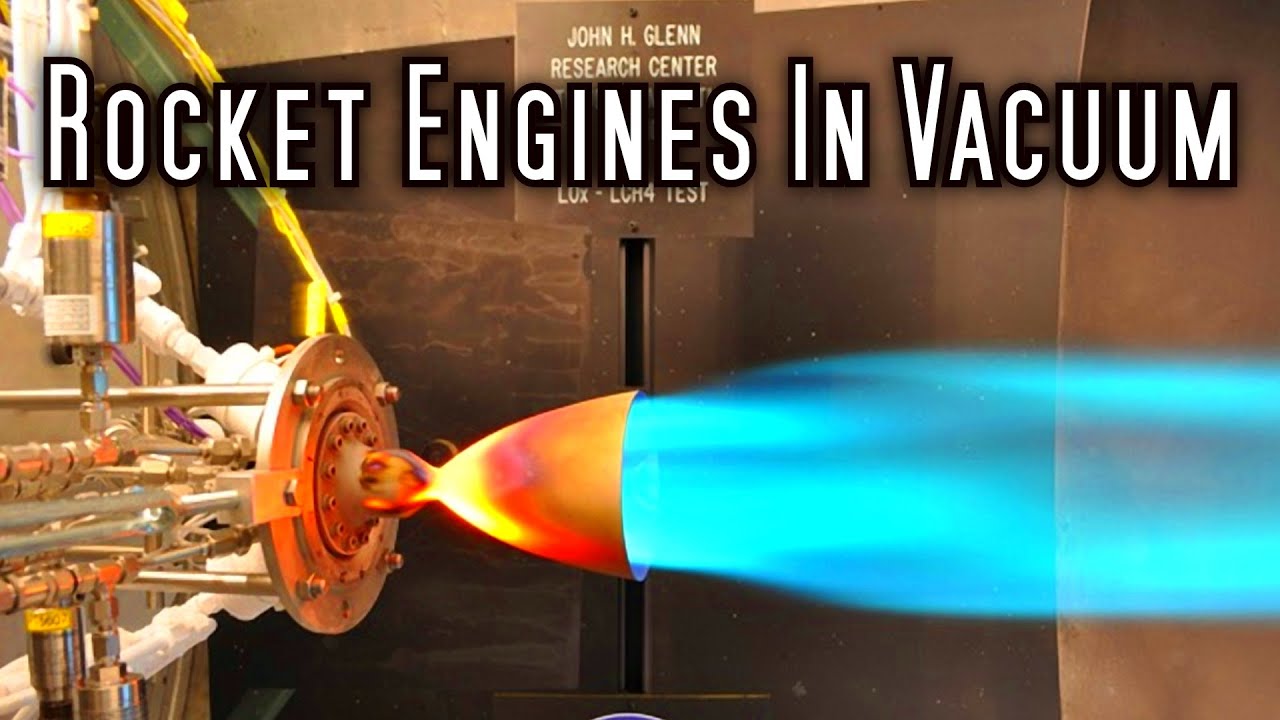Rocket engines designed to operate in the vacuum of space are different from those launch from sea level and operate in the atmosphere. For maximum efficiency (specific impulse), the exhaust from a rocket nozzle should be at the same pressure as the surrounding medium, and that pressure is much higher at sea level than in space, where it is zero. Consequently, the expansion ratio of a nozzle designed for vacuum should be greater than for a sea level engine, which is why vacuum engines often have nozzles which seem absurdly large next to comparable engines designed for launch from the Earth’s surface.
But firing a vacuum engine in a sea level atmosphere will result in the atmosphere intruding into the nozzle, a phenomenon called “flow separation”, which can cause instability in the exhaust flow leading to, in some cases, destruction of the engine. So how do rocket engineers test vacuum engines on the ground? It’s difficult, because if you were to fire a rocket engine in a vacuum chamber, it would be filled up by exhaust gases in seconds. The answers are clever, and take advantage of those “gas dynamics” effects that rocket designers learn in those forbidding courses that deter so many from pursuing careers in that demanding craft.
This is only one of the challenges of starting and operating a rocket engine in space, and the early history of spaceflight is rife with examples of missions that reached space without difficulty, only to have an upper stage engine or spacecraft propulsion fail in space. There are some things (for example, weightlessness) that you can’t test on the ground, but decades of experience have shown that time and money spent simulating the vacuum and thermal environment of space is handsomely repaid in reliability and mission success of engines tested that way.
